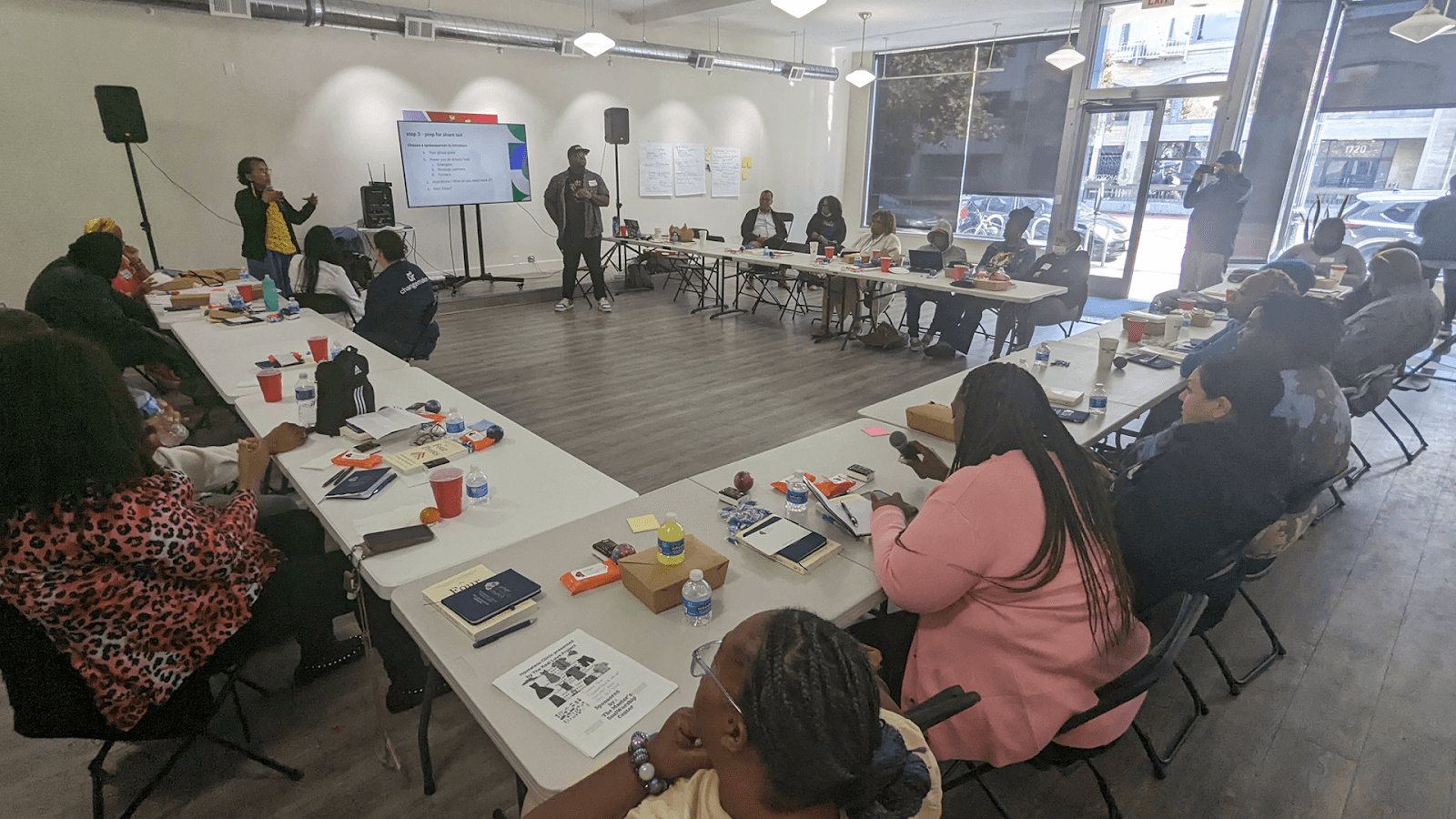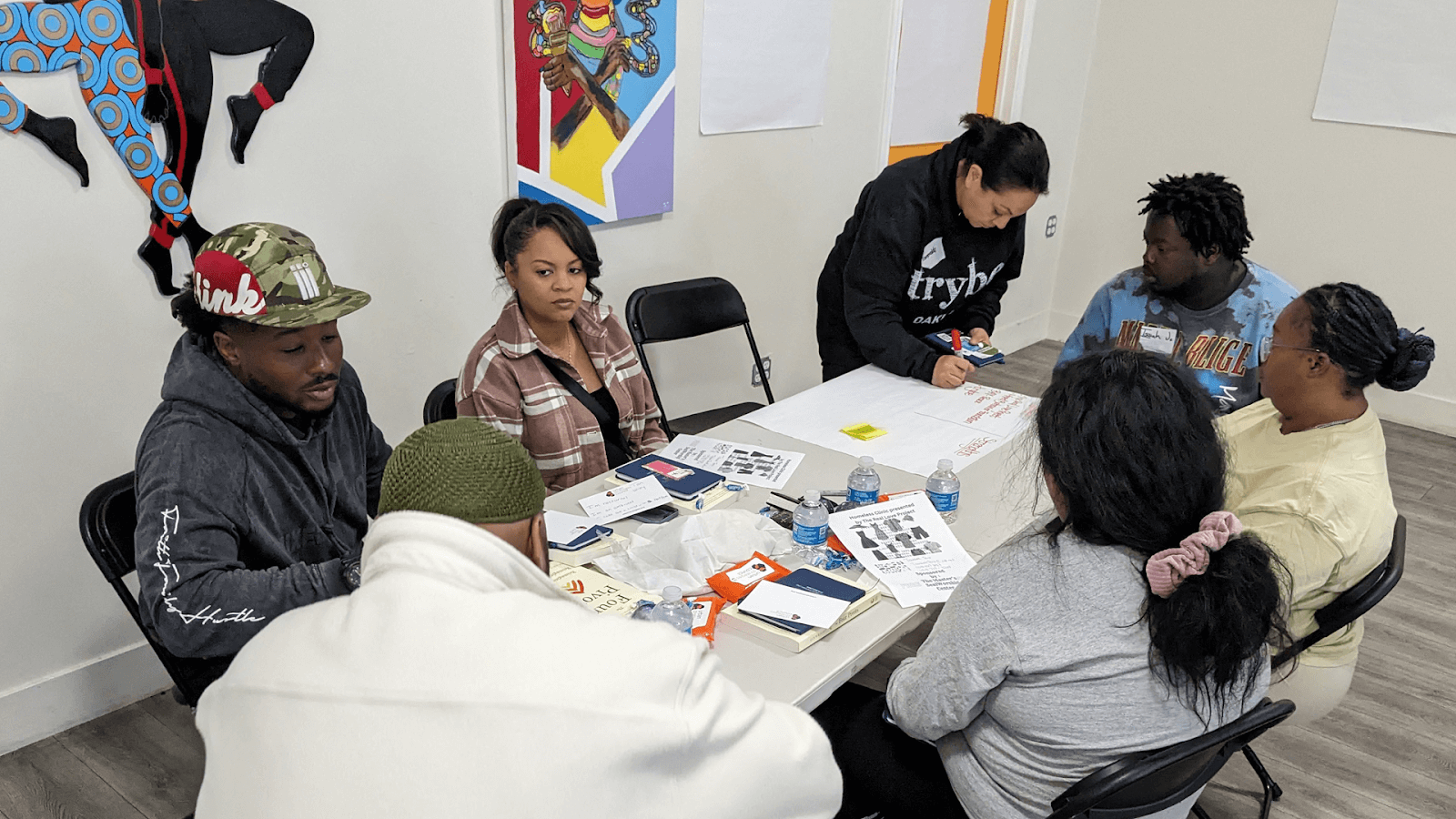Power
On Saturday, September 31, 2023, rootid facilitated a mini summit for over 30+ community-based organizations and nonprofits as the closing event of our Oakland Department of Violence Prevention’s mini grant cohort with Urban Strategies Council (USC).

The summit, titled “Power Mapping for Partnerships” focused on power and relationship mapping across organizations for more effective partnerships and collective fundraising. The event held space to build connections with like-minded individuals—networking, inspiring and uplifting one another.
Outside of the great food and amazing gifts provided by USC and their coordinator, Pat Hunter, the 4 hour event, which took place at OakStop (a black-owned co-working and event space in downtown Oakland) featured impactful conversations and team building activities led by rootid facilitators, Marcus Cinque Harris (Director of Projects, he/him) and Val Neumark (Director of Strategy, she/they).
The Facilitators of the summit were highly organized and very relatable. Extremely high value content and the organizers made it very comfortable and conducive for learning, developing new skill sets and improving on your skills.
participant in the post-event survey
In alignment with The National Equity Project and Stanford d.school’s Liberatory Design process, as well as the Design Justice Network principles, rootid worked with USC and the participating organizations to organize and co-design an inclusive space that centered the needs within their cohort community. Through this same lens, we also facilitated focus groups and shared surveys for participatory input in order to better understand what would be the most productive use of their time at this closing event. We were surprised to learn that while most of them had spent months participating in virtual activities, there was still a desire to build deeper connections in person and a need to gain more understanding of each other’s work.

Beginning with the Liberatory Design process, we begin by Seeing the System in which we sit, spending time noticing and reflecting in order to help us be increasingly self-aware of our identities, beliefs, biases and values so that we can design our collective experience as equity-centered and ideally liberating for us all.
After coffee and pastries, we centered our collective need for healing by starting the morning with a moment of wellness as Jodie Geddes of Restorative Justice for Youth (RJOY) led participants through breathing and visualization exercises. The group then took time to do internal reflection activities and individual journaling. Participants were encouraged to visualize a world in which their organizations would no longer be needed and consider what their communities could look like if they achieved their mission.
After an icebreaker activity where individuals shared 3 unique facts about themselves to identify common interests, we played some calming work music and broke into “Birds of a Feather” groupings. This work led to collective partnership development by aligning shared values, areas of focus, and community assets. Organizations gathered in different areas of the meeting room and discussed their strengths and needs while identifying opportunities for partnership and collaboration. They were able to gain greater insight into how they were already connected within their community, how they could share their networks, support each other’s visions, and how their programs could work together for additional funding opportunities.

After gaining a better understanding of their ecosystem and ways to build collective power, the event wrapped up with organizations making plans to continue their partnerships through structured coalition building. Finally, Pastor Zaniel Young addressed the group in closing with a message about asset mapping. He shared that by expanding your network, meeting more people, and getting to know each other better would lead to deeper relationship building.
Each organization left the event with a gift bag of resources, giftcards, and books. They were highly engaged and excited for the next steps to building collective power within their community. As one participant said, “It was an excellent training and collaboration building community and resources.”

